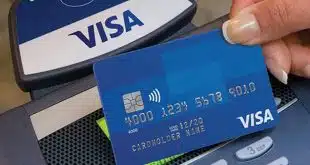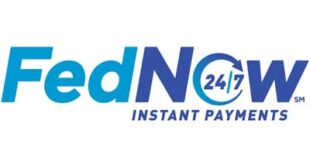The National Retail Federation misstates par value, understates banks’ costs to process debit cards, and conveniently forgets how merchants have benefited from replacing checks with electronic transactions, says Rule Loving.
Merchants should be careful of what they seek. Unintended consequences from misinformation may tarnish anticipated benefits.
Rule Loving is assistant vice president for retail services at StonehamBank, Stoneham, Mass. Reach him at rloving@stonehambank.com
In December, Digital Transactions published an article by Mallory Duncan, senior vice president and general counsel of the National Retail Federation, called “‘Reasonable And Proportional’ Should Mean Close to Par,” which was a defense of the Durbin Amendment and an argument for very deep reductions in debit card interchange.
The article was very slick, arguing that merchants should collect full (“par”) value on debit card transactions just as they do on checks. Just one big problem: The article completely ignores the fundamental legal differences between checks and electronic transactions, invalidating all price comparisons between the two payment types. Beyond that, Duncan offers no evidence to support other, even more outrageous claims.
Start with the article’s title: “‘Reasonable And Proportional’ Should Mean Close to Par.” This statement simply implies that card transactions do not settle at par value like checks. Anyone who has written a check to a merchant for one transaction, and has used a debit card for another, has seen the check post to his statement for the amount of the purchase and the debit item also post for the amount of the purchase. This fact means the debit transaction has settled at par value.
When a merchant deposits checks, it receives full value for the checks. It is then subject to fees from the bank of first deposit to deposit those checks. The bank of first deposit will then submit the checks for collection, and pay fees if the items are submitted to the Federal Reserve Bank. The merchant is paying fees for the settlement of the items and any encoding of the amounts on the checks. The merchant is responsible for the items through the collection process, and if a check is returned for any reason, such as closed account or insufficient funds, the merchant bears the risk.
Thus, there are processing fees associated with the movement of the check through the banking system. The paying bank for the check has 24 hours to return the item to the merchant. After 24 hours, the paying bank has risk ownership.
Strong Supporters
With debit transactions, merchants can get authorization and approval at the point of sale. Card information is submitted to the issuing bank through the card network, and the issuing bank approves or denies the amount submitted. Once the transaction is approved under the card network’s regulations, the issuing bank is responsible for the collection of the item from the customer. The total amount of the transaction is credited to the merchant and settled at the issuing bank.
The merchant pays fees for the transaction, and because the collection risk has been shifted to the issuing bank, the fees are higher than those for check collection. The issuing bank pays fees to the network submitting the transaction and also pays fees to its processor to process the transaction.
The NRF’s argument about par value defies the one fundamental of transaction processing in banking that has existed since the beginning: double entry bookkeeping. Items entered as cash items are collected in full, be they check, automated clearing house, or debit card activity. There is no process in place for partial collection of a cash item.
Since the debit card began as an entry to customers’ accounts, numerous systems have been developed and deployed to help issuing banks reduce losses associated with fraudulent card transactions. Neural databases, real-time balance availability, PCI standards, holograms on cards, and international hot card support have all been developed as a direct result of issuers’ card losses due to the ownership of risk for the transaction.
When debit card activity first appeared, merchants were strong supporters because debit card transactions were efficient, risk was eliminated as long as they followed card regulations, and customers used less cash, further reducing costs to merchants. As card activity grew and the competitiveness between banks grew, card-reward programs funded by issuing banks allowed customers to gain even more value from their debit cards. Since all reward programs are based on purchases from merchants, these programs benefited merchants as well.
Duncan claims that, with debit cards, “[b]anks began saving huge sums over the costs of processing paper checks.” I did not see any analysis by an accounting firm to support this statement. If all costs associated with card activity are included, including fraud losses, fraud prevention, neural networks, real-time decision systems, and reward programs funded by issuing banks, this statement is simply not true.
Convenient Amnesia
Nor are checks as inexpensive for merchants as they appear. I am sure Duncan, if asked, could present merchants’ annual losses from check presentment during the last 30 years. These losses represented such a burden to merchants that they purchased check-protection systems that allow them to scan checks into databases that identify accounts with return activity. I doubt that Congress was supplied these costs as part of merchants’ cost to process a check.
Now that the banking industry has induced consumers to use cards instead of checks, and check volume has declined as card volume has grown, the NRF no longer believes merchants need to accept checks and has conveniently forgotten the benefits merchants have generated accepting cards. Merchants should be careful of what they seek. Unintended consequences from misinformation may tarnish anticipated benefits.
Many years ago, the Fed produced a report called the Fed Functional Cost Analysis. For many years, the report indicated every consumer checking account represented a net loss to banks. There were not too many institutions offering “free” checking. Once debit cards and interchange income were deployed and overdraft protection programs designed, the most unprofitable accounts as a group could be viewed as profitable. Without these supports, “free” may soon describe the good old days.




